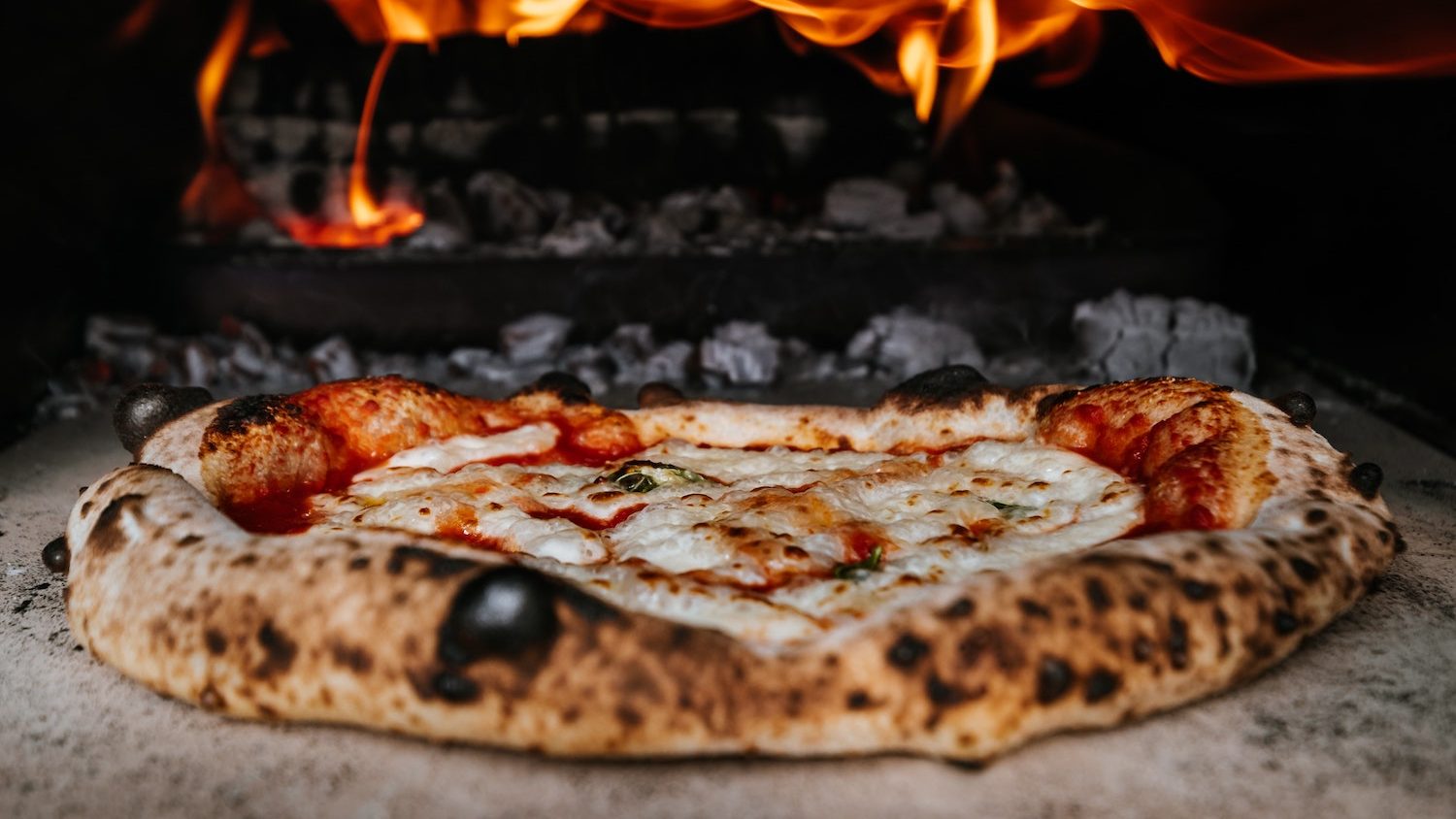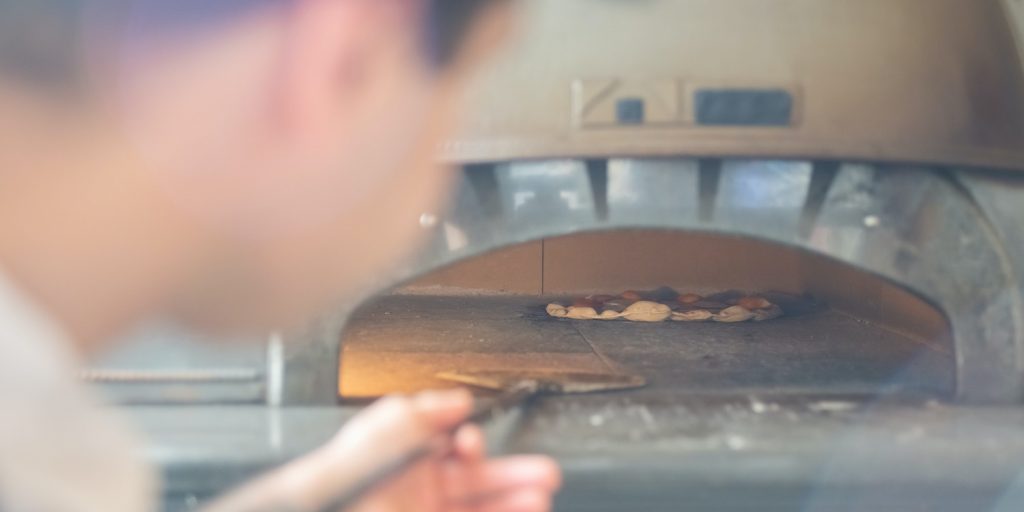Pizza stones are a must-have for anyone who makes homemade pizza. It not only makes the process easier, but the cooking time is much faster too. There aren’t many downsides to owning a pizza stone or two!
However, a few questions commonly pop up in people’s minds after purchasing a pizza stone. For example, is a pizza stone like a cast iron pan, which you need to season with oil before using? Or is it more like a non-stick pan?
Read on as we answer whether you should oil a pizza stone and some other common questions people have about pizza stones.
What Are Pizza Stones?
Pizza stones are a stone material you put into your oven. They’re generally square, rectangular, or circular and are flat on both sides. Standard pizza stones are an inch thick, which helps them retain heat without being too heavy or not fitting in your oven.
They use a material that conducts heat well, meaning they heat up and retain heat well. Being able to retain heat is essential for the proper functioning of a pizza stone. Without heat retention, pizza stones would be useless.
Pizza stones are practical in cooking because they absorb heat from the oven and help disperse the heat evenly throughout your oven. Pizza stones help confirm that you cook food like pizza at the right temperature, which increases the chances your pizza isn’t raw or overcooked.
What Are Pizza Stones Made of?
Pizza stone material dictates what you can and can’t use it for, so it’s essential you know the material before purchasing or using it. There are three primary materials manufacturers use when making pizza stones. They are:
- Ceramic
- Clay
- Cordierite
- Composite material
These days, the most common types of pizza stones are composite or cordierite because they’re much more durable than clay or ceramic. Clay and ceramic pizza stones scratch and break much more easily. Composite and cordierite usually cost more, though.
Manufacturers produce composite pizza stones from a mixture of ceramics and another material, such as cordierite or another material that conducts heat well. Most composite pizza stones use a proprietary blend of materials.

Should I Oil My Pizza Stone?
It seems intuitive that you should oil a pizza stone. Oil helps create a barrier between the cooking vessel and the food, which ultimately helps ensure your food won’t stick to the cooking vessel. But that’s not how it works with pizza stones.
Materials like ceramics, clay, and cordierite have natural, microscopic pores that you can’t see. But oil can penetrate those pores, causing the stone to lose strength. Also, this isn’t a problem for just oil but all types of moisture.
Pizza stones are unglazed. Glazing ceramics and other materials entail applying a layer of material to the ceramic before firing it in the kiln. The glaze gives the ceramic an added protective layer that fills in those pores.
But since pizza stones are unglazed, they don’t have a protective layer on the pores. Since the pores are open, they can allow moisture in. That moisture is the bane of pizza stones, and you should avoid it at all costs.
You mustn’t apply oil to your pizza stone because the oil will enter those pores and weaken the structure of the material. Even if you think you need oil, you shouldn’t apply any directly to the pizza stone.
How Does Moisture Affect Pizza Stones?
The microscopic pores on a pizza stone may not be big enough for us to see, but they are certainly large enough for oil or water to enter. Once oil or water enters these pores, they can stay inside until you use the stone next.
Depending on the situation, moisture trapped in the pores can cause a couple of issues. In mild cases, the water or oil will cause the pizza stone to retain heat unevenly. That means your pizza will taste differently the next time you bake it.
Unfortunately, a weird taste isn’t the only problem that can occur when you let moisture sit in the pores of a pizza stone. In the worst case, moisture or oil will cause the pizza stone to weaken and ultimately break.
The best way to avoid these problems is to make sure that your pizza stone stays dry and you don’t apply any oil to the stone. As long as you do so, your pizza stone should last years.
What if My Pizza Stone Gets Wet or Oily?
You should never use soap on your pizza stone or soak it in water. If you need to clean a pizza stone:
- Use a damp towel to remove any food remnants.
- If any food remains, use another damp towel, but use hot water.
- Repeat until the stone is clean.
If you happen to soak your pizza stone with water, dry it with a towel as quickly as possible. Then, allow the pizza stone to air dry totally before using it for cooking again.
If your pizza stone gets oily, the process is much more difficult. If you spilled oil or cooked something so oily that it left a grease mark, you’ll need to apply a baking soda paste. Baking soda won’t negatively affect your pizza stone, so there is no need to worry.
Start by mixing baking soda with water until you form a thick paste. Then, apply the paste to the greasy part of the pizza stone. Allow it to sit for a few minutes, then wipe off the paste with a brush. Repeat until the area isn’t greasy.
How To Ensure Non-Stick Cooking Without Oil
When you’re cooking pizza, you shouldn’t use oil to make the pizza stone non-stick. The pizza stone is already semi-non-stick. The main ingredient that’ll help you ensure a non-stick surface on your pizza stone is flour.
Once you’ve made your dough and shaped it into a circle, apply a thin layer of flour to your hands. Lightly dust the pizza stone with flour. Once you’ve done this, you should be able to place the dough on the pizza stone. You can use fine cornmeal instead of flour if you like.
The flour helps keep your pizza from sticking to the pizza stone by creating a barrier that stops moisture. When cooking, moisture builds up underneath the pizza, making the dough stick to the stone. By preventing that moisture with either flour or cornmeal, you can ensure a completely non-stick pizza cooking surface.
Wrapping Up
Pizza stones are a great way to cook pizza at home. They provide users with more efficient and easy cooking while at the same time making the quality of pizza closer to your favorite pizza place.
But just because pizza stones make life easier doesn’t mean you’re off the hook concerning pizza stone care. One of the most common questions about pizza stones is should I oil my pizza stone?
Considering the damage you can do to your pizza stone if it gets oil on it (or any other liquid for that matter), you should avoid applying oil. Instead, try putting flour or cornmeal on the pizza stone. Products like that will help reduce moisture, which is the cause of stickiness, while at the same time protecting the stone from damage.
